MLRI staff regularly write and disseminate policy papers, reports and other publications on issues impacting economic, racial and social justice for low-income people.
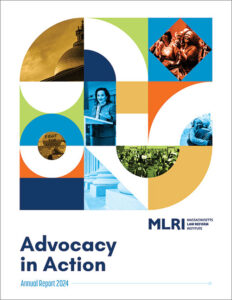

Advocacy in Action: MLRI Annual Report 2024
Discover MLRI's impact in 2024 through our 'Advocacy in Action' report. Learn how we've championed justice, defended vulnerable communities, and driven meaningful change across Massachusetts. Whether it is through litigation, legislative advocacy, or coalition building, we have the tools to improve and uphold the law.
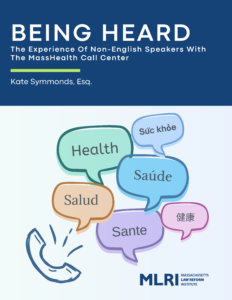

Being Heard
MLRI’s report, “Being Heard: The Experience Of Non-English Speakers With The MassHealth Call Center,” explores the barriers that non-English speakers face when trying to communicate with MassHealth, and offers concrete recommendations for improvement. The report draws on the experiences of MassHealth members who were delayed in getting the health care they needed because of language access barriers: a man who couldn’t get his blood pressure medication for months, a child who needed insulin, and a pregnant mother who couldn’t get prenatal care. The report finds that while MassHealth has made progress, there remains significant room for improvement.


Are 113 affordable units really coming to Fall River?
In October 2024 the Mass. Law Reform Institute (MLRI) published a report, Fall River Needs a Balanced Housing Strategy, followed by an article in Commonwealth-Beacon. The report documents the extreme scarcity and need for low cost rentals in Fall River and the city’s failure to develop affordable housing while prioritizing and supporting the boom in market rate and luxury projects.


Update on the Housing Development Incentive Program (HDIP): a subsidy for market rate housing
This update to the MLRI 2022 HDIP reportprovides troubling new data and continued concerns about this costly program that supports only higher priced housing. Advocates continue to urge legislators and the Healey administration to revise HDIP to support mixed income housing – both market rate and affordable. HDIP could become a “housing development incentive program” for ALL Gateway City residents.
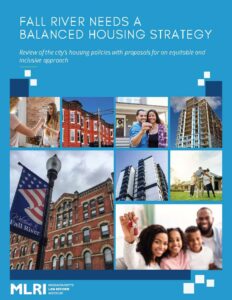

Fall River Needs a Balanced Housing Strategy
Review of the city's housing policies with proposals for an equitable and inclusive approach.
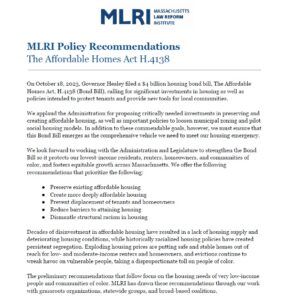

Policy Recommendations: The Affordable Homes Act
On October 18, 2023, Governor Healey filed a $4 billion housing bond bill, The Affordable Homes Act, H.4138 (Bond Bill), calling for significant investments in housing as well as policies intended to protect tenants and provide new tools for local communities. We applaud the Administration for proposing critically needed investments in preserving and creating affordable housing, as well as important policies to allow inclusionary zoning in municipalities by simple majority vote and to pilot social housing models. In addition to these commendable goals, however, we must ensure that this Bond Bill emerges as the comprehensive vehicle we need to meet our housing emergency.


Models of Justice: MLRI Annual Report 2021-2022
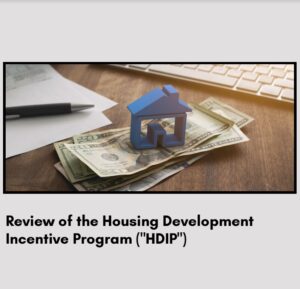

Review of the Housing Development Incentive Program (“HDIP”)
Using information gathered from public records requests to the Massachusetts Department of Housing and Community Development (DHCD), this report reviews the the Housing Development Incentive Program ("HDIP").
